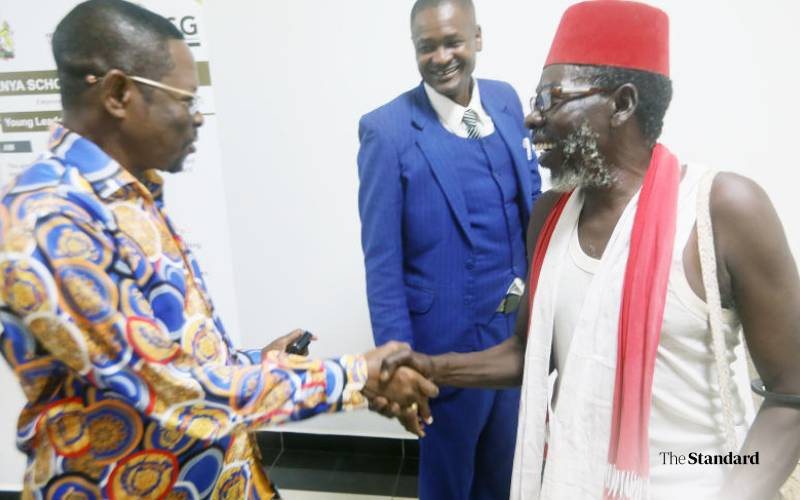×
The Standard e-Paper
Fearless, Trusted News

Kilifi Senator, Stewart Madzayo shakes hands with Kaya Fungu elder, Edward Kazungu during Coast region leaders meeting. June 22, 2024. [Omondi Onyango, Standard]
Senate Minority Leader Stewart Madzayo led elders and professionals from the stateless Waata tribe to call for recognition of the community as the country's newest tribe.